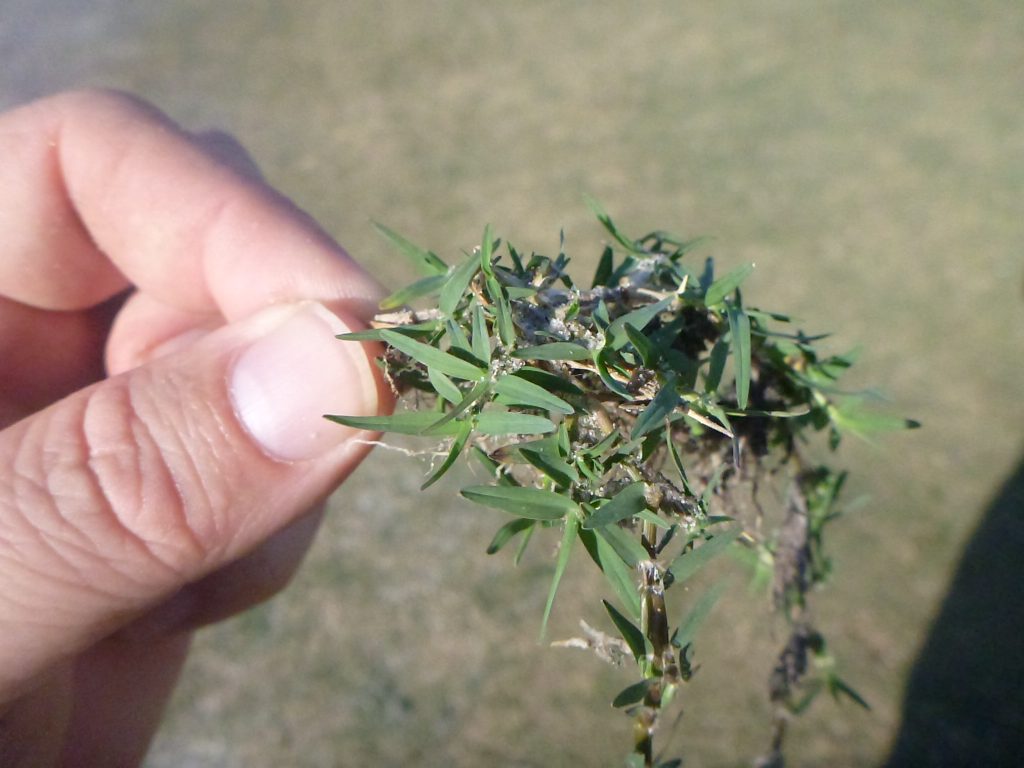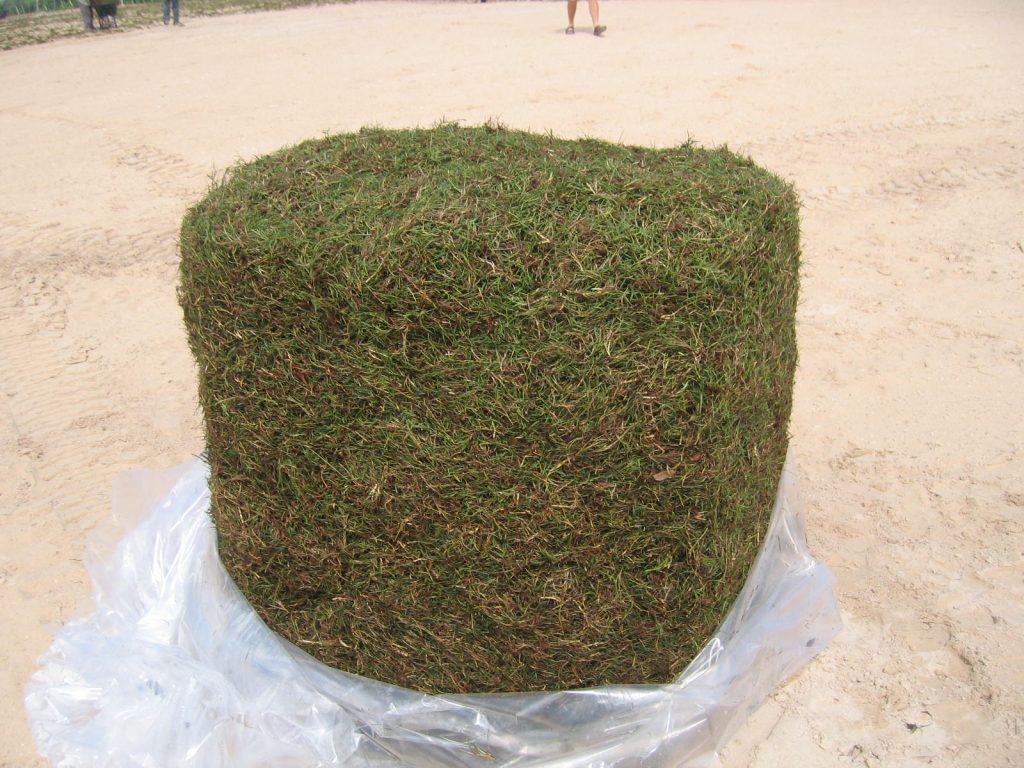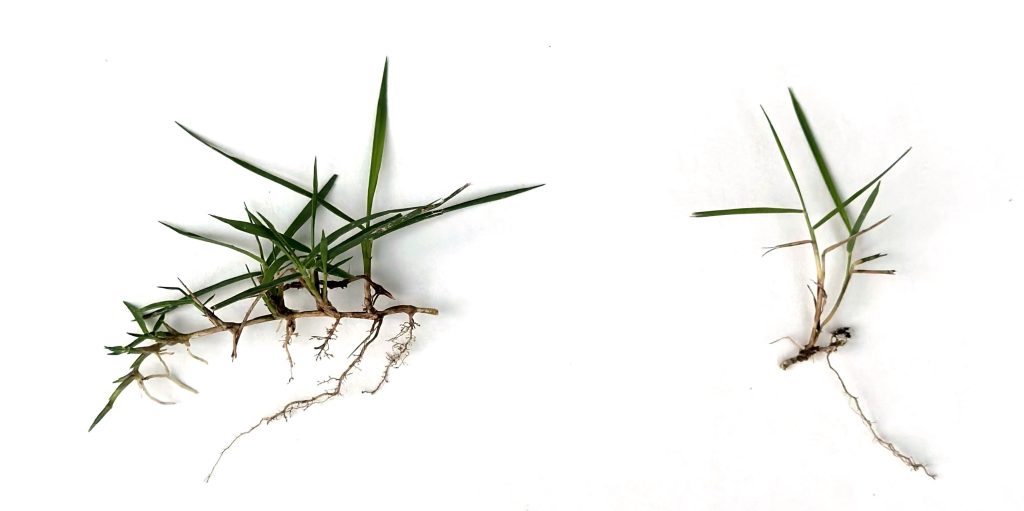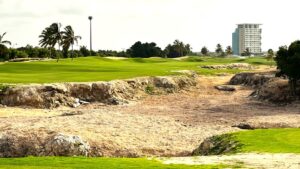Magic Beans Don’t Usually Germinate
All turfgrasses are not equal, and selecting the right variety for each project can be a difficult process. When suppliers make unsubstantiated and exaggerated turfgrass claims, a difficult process becomes a dangerous game.
- “Low fertility requirements”
- “Uses less water”
- “Rapid growth”
- “Low disease pressure”
- “Salt tolerance”
You’ve seen them. But what if they are just empty promises? Don’t risk your project on magic beans. Follow these simple guidelines to ensure success with your next turfgrass purchase:
1. Identify the Options
A wide selection of turfgrasses is available, including proven varieties with long track records and new, innovative options. Which of these claim to offer the benefits you need? Which are suitable for your unique conditions* and claim they can achieve your facility’s goals?
2. Assess the Options
Using your network, ask other turf professionals about their experiences with the options you’ve identified. What are the strengths and weaknesses of the product? Does the product live up to the hype of the turfgrass claims? While all feedback is helpful, pay particular attention to information gathered from sites most similar to yours. Negative (or positive) feedback about a product may be based on circumstances not applicable to your conditions. As much as possible, compare apples to apples.

3. Source the Options
This is the time to engage your local distributor/supplier. Get the most from the process by sharing as much information as possible: explain your specific goals, outline your unique site conditions, including soil and water data, and share the results of your research and assessments. And then secure product for trialing at your site.**
A crucial step in the selection process is insisting on certified product. Certification from a third party, such as the International Turfgrass Genetic Assurance Program (ITGAP), ensures that the turfgrass comes from known growing material and meets strict guidelines for purity and quality during production.

4. Trial Before Deciding
The true test will be on your site. And the most accurate results come from trials that replicate the actual conditions of the project as closely as possible – planting rates, soil conditions, water quality and quantity, inputs, maintenance practices, etc. Product claims could be based on elevated planting rates or inputs that don’t fit your budget. By aligning your trial to your parameters, those claims are put to the real test.
Treat your trial as you would the rest of the course. Determine a sufficient timeline for the trial and stick to it. Document the process with frequent written and photographic data. Make careful records of both the good and the bad.
5. Assess the Results
How did the grass(es) perform compared to the claims? Given your site conditions, budget, and unique circumstances, will the product stand up to the claims and fulfill your objectives?
If the results are mixed, there may still be options. Talk to your supplier about your concerns. Maybe a different but related product would be the more appropriate fit. Together with your supplier, explore options based on the trial data and results.
6. Go Time
Following this process eliminates the dangers of falling for puffed-up turfgrass claims. Your selection is solidly based on product performance specific to your site and conditions. No magic beans are involved.

Measuring the Value of Turfgrass Sprigs
Not all sprigs are created – or harvested – equally. The value is in the number of growing points, not the overall weight. One hundred kilograms of sprigs with multiple growing points will grow in much more rapidly and require a lower planting rate than one hundred kilograms of sprigs with minimal growing points or harvested shallowly with weak roots. Source your product from a reputable supplier who knows the value of quality sprigs.
* No one turfgrass is suitable for every project. Selection criteria should be based on a wide range of variables. Click here for more information on the selection process.
** Your supplier should be willing to work with you on the cost of trial material, either offering a discount initially or a rebate on the trial costs when the full project purchase takes place. Atlas Turf International’s objective is to match the right product to each project, and we will support trial efforts to ensure these results.



